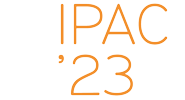Speaker
Description
Background and aim: The potential of a compact, laser-based ion accelerator for radiobiological and medical applications relies heavily on the control of the laser-target source and on the use of custom beam transport and delivery to the final target. Here we show the results of an experimental campaign dedicated to the dosimetry of the beam at the crosswire and the first radiobiological micronuclei (MN) assay study in the regime of ultra-high dose rate at selected proton energies at multi-MeV.
Methods: We have developed a proton beamline based on the so-called Target Normal Sheath Acceleration (TNSA) to deliver a proton beam radiobiological applications. We use TNSA driven by a 200 TW ultra intense laser to accelerate protons with a cut-off energy of up to 10 MeV. We use permanent magnet quadrupoles to select protons at 6 MeV and transport them, in the form of a collimated beam, to the final target position in air.
Results: We measured the spectrum and the deliverable dose of the proton beam at the sample position for each shot. We also evaluated uniformity across the beam and shot by shot fluctuations. We carried out dosimetric measurements that show a ultra-high instantaneous dose rate, with good uniformity over a cm-scale dimension and good shot to shot reproducibility. A preliminary measurement of radiation damage vs dose based on the MN assay was successfully carried out and compared with conventional X-ray source.
| I have read and accept the Privacy Policy Statement | Yes |
|---|
